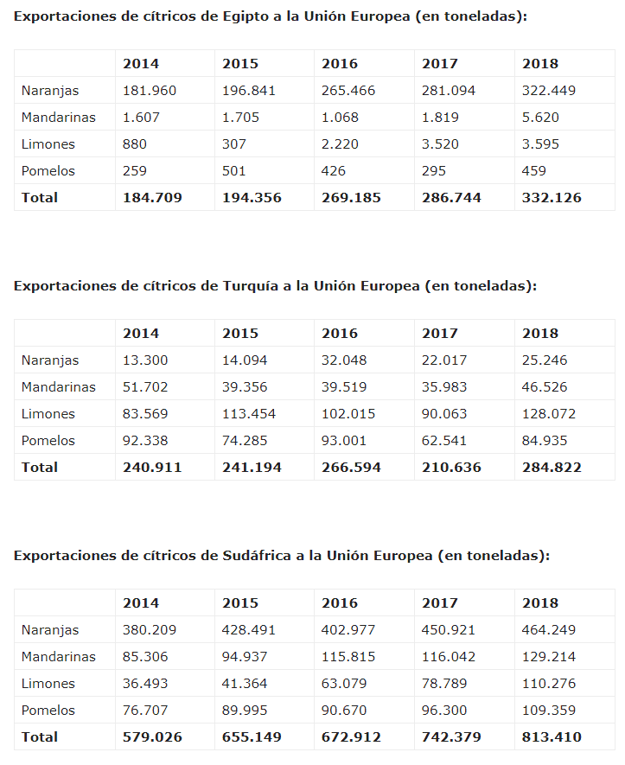The Valencian Association of Agricultural Producers (AVA-ASAJA) has asked the Ministry of Agriculture to take the necessary steps for the launch of a process aimed at the future application of a safeguard clause against citrus fruits from countries such as Egypt and Turkey. The reason for this is the exponential increase in their citrus exports to the EU over the last five years. The growth of South African citrus shipments to the European market during that same period has also been very significant, and some, in fact, have already requested the implementation of the safeguard mechanism. However, AVA-ASAJA believes that South Africa is not the only source of disturbance for Spanish citrus fruits, as other third countries, such as those above mentioned, are exercising equally unfair competition.
The official figures supplied by the Ministry of Commerce leave no room for doubt and corroborate this thesis. The cumulative rise of Egyptian citrus fruit exports to Europe between 2014 and 2018, especially those of oranges, has been estimated at 78.9%, with a volume totaling 332,126 tonnes. Meanwhile, Turkish citrus exports have grown by 18.2%, reaching a total of 284,882 tons during the same period. As for South Africa, the volume shipped has grown by 40.4%.
The consequence is that more than 1.5 million tons of citrus fruits from these three countries (and we are not counting the imports from other places, such as Morocco, Argentina or Brazil) have flooded Europe in recent years, competing with Spanish citrus for the same market niche. The problem is that neither the working, nor the environmental, fiscal or phytosanitary conditions in force in those countries are the same as those that apply in the European Union.
The president of AVA-ASAJA, Cristóbal Aguado, says that "this is an unacceptable situation, which makes it necessary to study the advisability of applying possible safeguard clauses, given the devastating impact on the incomes of thousands of families." He also appeals "to the urgent need for the European Commission to understand that reciprocity is necessary when signing commercial treaties."

